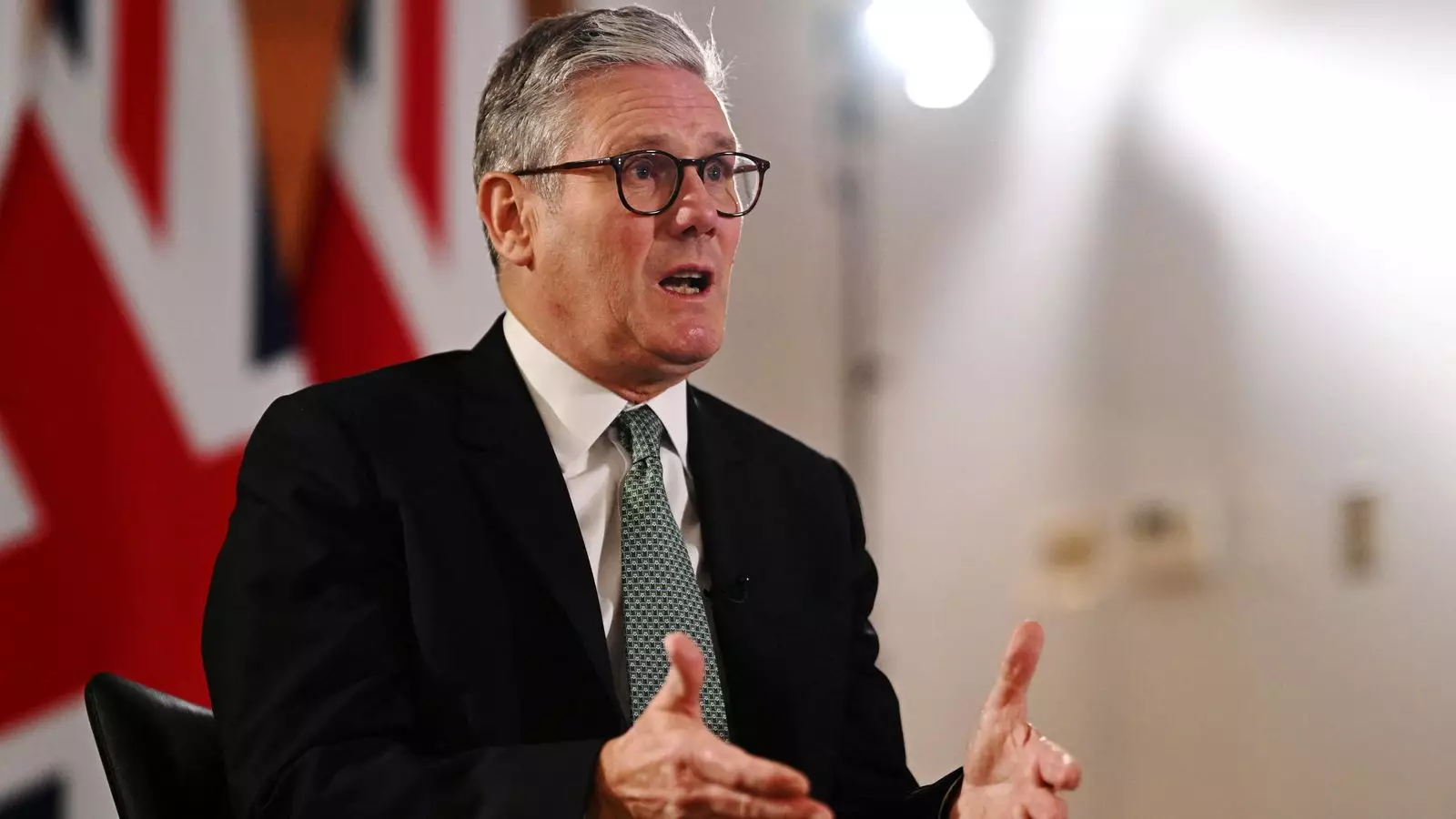In the realm of political engagement, the acceptance of donations and gifts can often lead to public outcry and ethical scrutiny. Recently, Sir Keir Starmer, the leader of the UK Labour Party, has found himself at the center of this scrutiny due to his acceptance of significant financial contributions and the provision of accommodation during the recent elections. The ramifications of such decisions extend beyond personal choices; they challenge the integrity of democratic processes and the trust that citizens place in their political leaders.
The controversy began when it was disclosed that Starmer accepted a donation for accommodation valued at over £20,000 from Lord Waheed Alli during a critical period in his campaign. The timing coincided with the calling of the election and his son’s looming GCSE exams, suggesting a desperate bid to shield his family from the media frenzy and public scrutiny. Starmer framed his acceptance of the accommodation as a parental duty, proclaiming that he would not allow external pressures to jeopardize his son’s education. However, this justification opens a broader dialogue about the intersection of personal and political lives and the ethical implications of accepting such donations.
Indeed, while Starmer expressed a commitment to ensuring a conducive environment for his son’s studies, the very act of accepting substantial donations raises fundamental questions about transparency and accountability. His assertion that “no money exchanged hands” while simultaneously accepting accommodation implies a nuanced form of patronage that may undermine public trust. It is crucial to analyze not just the legality of these donations but the moral landscape surrounding them.
Starmer’s situation mirrors a growing concern regarding the influence of wealthy individuals on political agendas. With Lord Alli as a notable donor—having contributed a significant portion of Starmer’s reported £107,000 worth of gifts and hospitality—one must consider the potential for conflicts of interest. Does the dependency on financial support from affluent benefactors skew a politician’s decisions or policy preferences? Such questions are amplified when juxtaposed with Starmer’s previous public criticisms of the Conservative Party’s acceptance of large donations. The commitment to financial transparency is essential for any leader advocating for equality and fairness in society.
Furthermore, this controversy does not exist in a vacuum. It arises at a time when the government is contemplating tax increases, prompting discussions about the ethical implications of public figures accepting donations while advocating for taxpayers to bear more financial burdens. Starmer’s defensive responses to inquiries regarding his donation practices signal an awareness of the complexities involved but also suggest a troubling disconnect between his stated values and his actions.
Starmer has tried to personalize his rationale, arguing that the backdrop of student exams and family well-being played a significant role in his decisions. The attempt to humanize political choices is undoubtedly important; however, it risks becoming a shield against warranted scrutiny. When dissecting a leader’s decisions, it is imperative to unravel these human stories to get to the core of policy implications and ethical standards. The suggestion that personal narratives can justify significant financial dealings raises critical discussions about power dynamics within political fundraising.
As public discourse around political donations continues to evolve, the onus lies on leaders like Sir Keir Starmer to uphold ethical standards that reflect the values they advocate. The challenge of balancing personal commitments with political responsibility is one that demands vigilance and integrity. To restore public trust, a reevaluation of donation practices and their ramifications is paramount. The public deserves transparency and accountability from those in power, and it is essential to engage in dialogue about these issues to foster a more equitable political framework. Only then can society expect true representation, stripped of the underlying influences that come from large financial contributions.


Leave a Reply